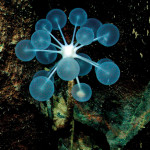With the publication of the current administration’s budget calling Sea Grant part of the “lower priority, and in many cases, unauthorized” parts of NOAA, we here at DSN are highlighting people who are or have been supported by Sea Grant. If you would like to share your story with us about why #IAmSeaGrant, please send it to us.
Josh Good is a concerned citizen who has more than a fair bit of knowledge about Sea Grant programs. He recently shared with me a letter he sent to his senators and representatives regarding the prospect of eliminating Sea Grant.
I am writing today in reference to the proposed cuts to the National Oceanographic and Atmospheric Administration (NOAA), specifically regarding the National Sea Grant Program.
I am a 5th grade teacher and my wife is an Alaska Sea Grant Marine Advisory Program Agent here in remote port community of Unalaska/Dutch Harbor.
You may know that Unalaska/Dutch Harbor is indisputably one of the most prolific fishing ports in the United States, and even the world. Being consistently ranked in the top three fishing ports nationally in terms of fishing related income, being among the top 30 ports worldwide when considering volume of fish, and supporting a community of nearly 5,000 residents (not to mention the thousands of fishers who work through the port), Unalaska/Dutch Harbor is completely dependent upon the health of the fisheries based in the surrounding waters. The services of NOAA, including accurate and timely weather forecasts, scientific monitoring and surveys, and fisheries research and regulation, all among many other things, help to provide safety, profitability, and sustainability within the industry upon which our community and many others like it depend.
The mission of Sea Grant focuses on the health of the ocean and the sustainability of ocean based practice, and that mission impacts everyone in our community along with countless other communities across the country and world- coastal or not. Sea Grant programs play a huge part in everything from my 5th grade classroom’s (super awesome) science curriculum; to support of the science, management, and even international and domestic sales of the fish and fisheries that our community entirely relies upon; to the monitoring of endangered, protected, and/or commercially and subsistence harvested species across our state and country.
Sea Grant as an organization, the research and programs they organize, and the agents they employ, each play an integral part in the connections between science, industry, and members of the public. Without these connections that are made and fostered by Sea Grant programs, each stakeholder in marine related industries would be more isolated, less efficient, and far less profitable. Putting profitability into perspective, consider the economic value of the fisheries in Alaska alone, all of which are somewhat to wholly dependent upon services provided by NOAA and Alaska Sea Grant, a value that is far reaching and impossible to ignore. The Alaska Seafood Marketing Institute reports that the fishing industry in Alaska supports nearly 60,000 workers annually, and well over 110,000 full time equivalent jobs throughout the United States. The industry is responsible for over $5.8 billion in annual labor income, and more than $14.6 billion in nationwide economic output.
With that small amount of information, please consider the following:
– If employment or job creation and sustainability are a concern, do not allow NOAA and Sea Grant Funding to be cut.
– If Economic output and economic value are a concern, do not allow NOAA and Sea Grant Funding to be cut.
– If the people of the community of Unalaska/Dutch Harbor, along with every other coastal, Great Lake, and watershed based community in the United States is of concern to you, do not allow NOAA and Sea Grant Funding to be cut.





